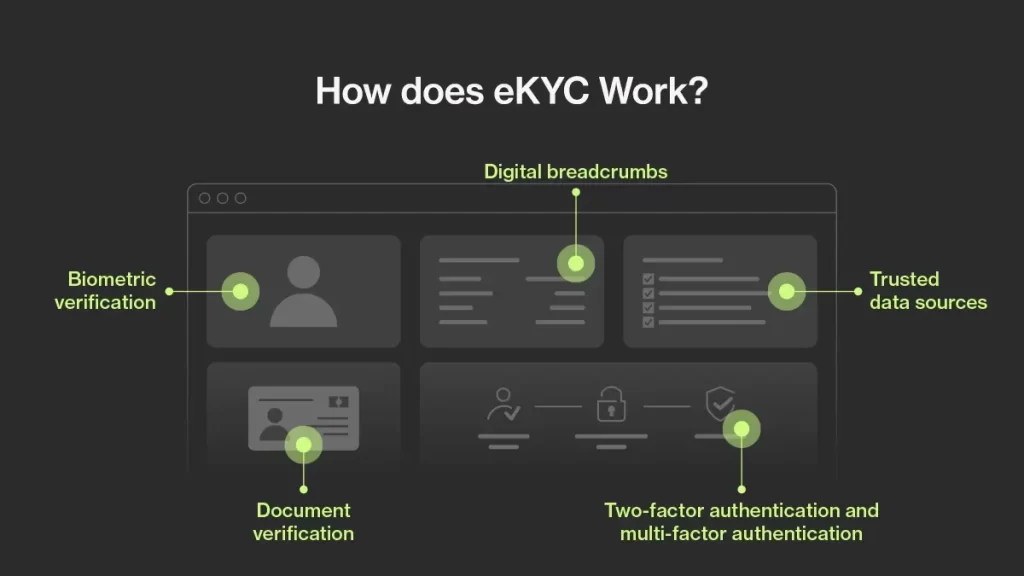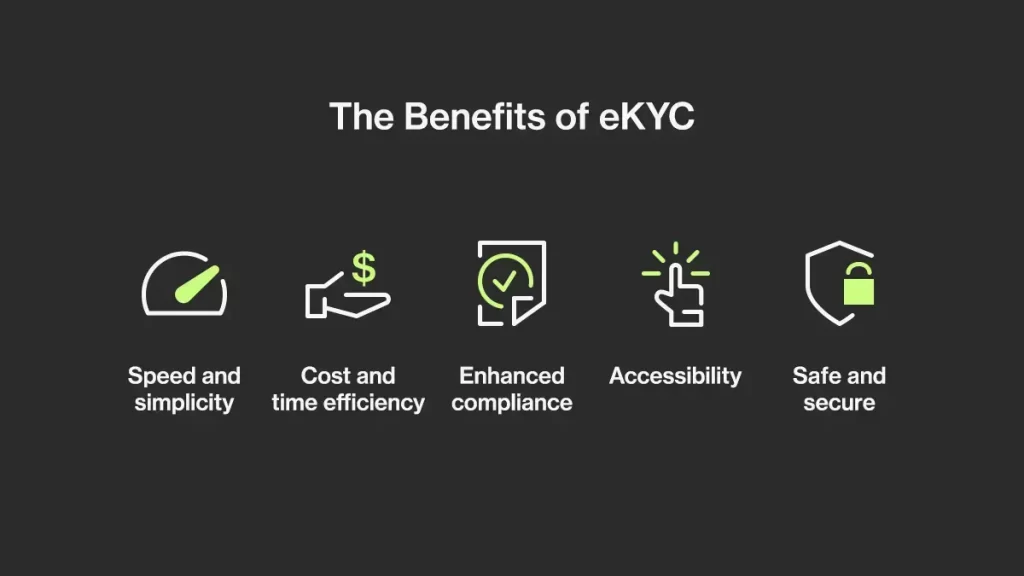With digital transactions and online interactions becoming increasingly common, traditional processes face the challenge of keeping pace with the speed and convenience that consumers demand. One such area undergoing a transformative shift is the Know Your Customer (KYC) process, with Electronic KYC (eKYC) bringing a new era of efficiency and security.
What is eKYC?
To understand eKYC, we first need to understand the KYC or Know Your Customer process. Businesses and financial institutions use KYC to verify the identity of their customers. The main objective of KYC is to prevent identity theft, fraud, money laundering, and other illegal activities.
During the KYC process, individuals are required to provide certain documents and information to prove their identity. This may include government-issued identity documents, proof of address, and other relevant documentation. The collected information helps businesses ensure that they are dealing with legitimate customers and comply with regulatory requirements. However, traditional KYC methods often involve cumbersome steps, including physical document submissions and manual checks, leading to delays and potential errors.
In order to make KYC more efficient, many companies, especially financial institutions, are turning to eKYC. eKYC, or electronic KYC, focuses on the online process of KYC and digital onboarding solutions. While traditional know-your-customer methods may include offline steps, eKYC moves all processes online and, in turn, eliminates the need for physical documents, in-person branch visits and long manual steps.
How does eKYC Work?

The implementation of eKYC encompasses various methods and technologies, including:
Biometric verification: Utilising biometric data such as facial recognition or voice recognition offers convenience to customers and the most accurate verification results. Most smartphones, equipped with high-quality cameras, eliminate the necessity for additional equipment.
Document verification: Digital submission of official documents like passports, birth certificates, and proof of address can be achieved through a smartphone camera. Facial recognition software can then verify that the customer’s selfie aligns with their photo ID.
Two-factor authentication and multi-factor authentication: This security layer requires customers to verify transactions using a second hardware token or across multiple accessible channels, reducing the risk of identity fraud.
Digital breadcrumbs: Characteristic identifiers, known as digital breadcrumbs, arise from an individual’s online meta-information, including IP address, browser settings, email address, and typing speed. These can aid in fraud prevention during online identity verification.
Trusted data sources: Electronic identity verification can automatically cross-check individuals or entities against government registries, databases, whitelists, and official sanction lists.
The Benefits of eKYC

In the context of customer onboarding, traditional KYC methods often lag in speed and complexity compared to user-friendly services like online banking or e-commerce. The traditional KYC process, involving physical document presentations and manual checks, can introduce friction, slow down transactions, and create the potential for human error. For some customers, the effort required in traditional KYC becomes a barrier to accessing financial services.
eKYC addresses these challenges and offers several benefits:
Speed and simplicity: eKYC utilises automated systems, completing identity verification in minutes (or 60 seconds with Ondato) rather than days or weeks, making it fast and straightforward.
Cost and time efficiency: eKYC saves businesses time and money, providing a streamlined and low-effort experience for customers. It eliminates the need for physical document handling, as well as simplifies record-keeping, reducing inventory and employee costs.
Enhanced compliance: Businesses using eKYC can exceed minimum KYC standards by implementing additional customer screening and real-time online and database checks.
Accessibility: Unlike traditional KYC processes constrained by business hours and physical locations, eKYC operates 24/7. Customers can complete the verification process at their convenience, contributing to a seamless user experience.
Safe and secure: eKYC ensures the security of financial records, reducing the risk of data loss, sharing, or alteration, and eliminates the possibility of losing important documents.
Why Do Businesses Choose Ondato OS as Their Primary KYC and AML Platform?
We know that KYC is a never-ending process. That’s why Ondato’s KYC service is putting an end to manual processes with eKYC.
We pay special attention to onboarding speed. Depending on the KYC data process you implement, the OS can complete it in under 60 seconds. The process is as simple as it can be. With the use of eKYC, Ondato can verify a large number of users simultaneously.
In addition to this, our clients no longer need to worry about security. Powered by the most advanced machine learning technology, Ondato OS implements liveness checks to handle spoofing attempts, altered IDs, and other fraudulent activity. The technology delivers a 99.8% KYC success rate when verifying clients. And, as long as a person is your client, the system will routinely check relevant data to check for any changes in their risk profile.
Last Thoughts
As businesses strive to provide faster, more convenient, and secure services, the adoption of eKYC becomes a pivotal step. Its impact extends beyond mere efficiency; it reshapes the way we approach identity verification in the digital age. By embracing eKYC, businesses not only stay ahead of the curve but also contribute to a more seamless and inclusive user experience for customers worldwide.



